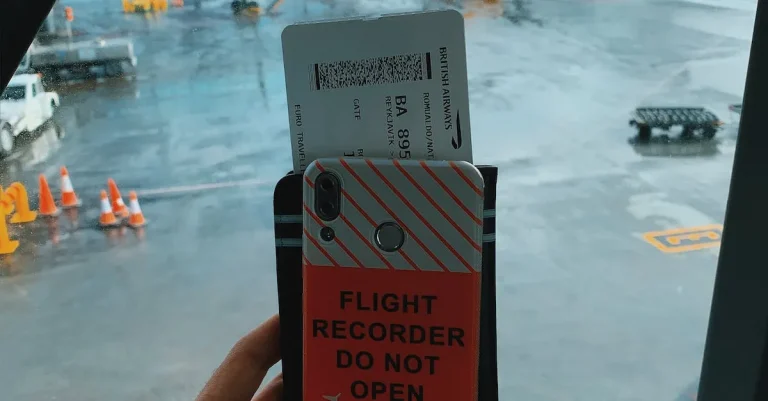Renting a car can provide convenient transportation when you’re traveling, but you may wonder if you need more than your passport to complete the rental process.
While passports are accepted for identification, there are some specific requirements and restrictions to be aware of when renting a car with only a passport.
In short, most major rental car companies in the U.S. will rent to passport holders, but you may need to provide additional documents like a travel visa or International Driving Permit.
There are also often restrictions on crossing state or country borders.
For more details on documentation, insurance, underage renters, and other considerations for renting with a passport.
Driver’s License Requirements
When it comes to renting a car, one of the first questions that comes to mind is whether you can rent a car with just a passport.
Instead, a valid driver’s license is typically required.
International Driving Permit often needed
If you are planning to rent a car in a foreign country, you may need an International Driving Permit (IDP) in addition to your passport and driver’s license.
It is important to note that an IDP is not a standalone document and must be used in conjunction with your valid driver’s license. The requirements for obtaining an IDP vary by country, so it is recommended to check with the embassy or consulate of the country you plan to visit for specific information.
Some states require U.S. license
In the United States, the requirements for renting a car can vary from state to state. While some states accept a valid driver’s license from any country, others may require you to have a driver’s license issued by the United States.
It is essential to check the specific requirements of the state you plan to visit or rent a car in before making any arrangements.
Additionally, some rental car companies may have their own policies regarding driver’s license requirements, so it is always a good idea to review the terms and conditions of your rental agreement.
Proof of Insurance
When renting a car, it is important to provide proof of insurance to protect yourself and others in the event of an accident. In most countries, third-party liability insurance is mandatory.
This type of insurance covers any damage or injuries caused to third parties involved in an accident that is deemed to be your fault.
It ensures that the injured party receives compensation for medical expenses, property damage, and other related costs.
Third-party liability insurance mandatory
Whether you can rent a car with just a passport depends on the country and the rental company’s policies. In some countries, it may be possible to rent a car with only a passport, but you will still need to provide proof of insurance.
This can usually be obtained through your own insurance policy or by purchasing it directly from the rental company. It is important to check with the rental company beforehand to ensure that you have the required insurance coverage.
For example, in the United States: Third-party liability insurance is typically included in the rental price.
However, if you are an international visitor and do not have your own insurance, it is a good idea to purchase supplemental coverage from the rental company to ensure you are adequately protected.
Supplemental coverage recommended
While third-party liability insurance is mandatory, it may not cover all potential expenses in the event of an accident. To provide additional protection, it is recommended to consider purchasing supplemental coverage.
For instance, in Canada: Third-party liability insurance is mandatory, but it is also recommended to purchase supplemental coverage.
This can help protect you from additional expenses that may not be covered by the mandatory insurance, such as damage to the rental car or theft.
It is important to carefully review the terms and conditions of the rental agreement and insurance policy before signing anything.
This will ensure you have a clear understanding of what is covered and what is not, as well as any deductibles or limitations that may apply.

Travel Restrictions
When it comes to renting a car, travelers must be aware of any travel restrictions that may affect their ability to do so.
These restrictions can vary depending on the country and the rental car company’s policies. It’s important to understand the limitations before making any travel arrangements.
Border crossing limitations
One common travel restriction when renting a car with a passport is border crossing limitations. Some rental car companies may have specific guidelines and restrictions when it comes to crossing international borders.
It’s crucial to check with the rental car company beforehand to ensure that you are allowed to cross borders with the rented vehicle.
Additionally, it’s essential to be aware of any visa requirements or necessary documentation for crossing borders.
Some countries may require additional permits or visas, and failure to comply with these regulations could result in legal consequences.
It’s always better to be safe than sorry, so make sure to research the specific requirements of the countries you plan to visit.
Change in drop-off location
Another travel restriction to consider is the change in drop-off location. Renting a car with a passport may allow you to pick up the vehicle in one location and drop it off in another.
However, there may be restrictions or additional fees associated with this option.
Some rental car companies may have specific drop-off locations where they allow vehicles to be returned. If you plan to drop off the car in a different city or even a different country, it’s vital to check if the rental car company allows for this and what additional charges may apply.
Planning ahead and being aware of any restrictions can help avoid any unexpected expenses or complications.
It’s worth noting that travel restrictions may vary from one rental car company to another. Therefore, it’s recommended to compare different rental car companies’ policies to find the best option for your specific travel needs.
Conclusion
While most major rental car companies will accept a passport for ID when renting in the U.S., there are important considerations around license requirements, insurance coverage, travel restrictions, and age minimums.
Some additional preparation with items like travel visas, International Driving Permits, and supplemental insurance can help passport holders cover all their bases for a smooth rental experience.
With the proper documentation and research on restrictions, renting a car solely with your passport can be feasible for eligible travelers.






